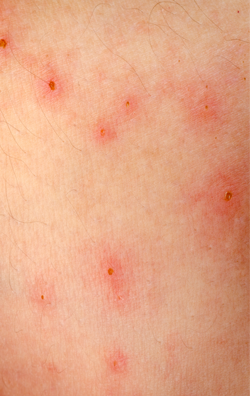
Asperger’s syndrome or Asperger’s disease belongs to the autism spectrum disorder (ASD) and is characterized by poor social interaction and nonverbal communication skills with others. The affected persons also show repetitive behavioral patterns. They tend to become awkward in the presence of others while showing extreme interest and skill in certain topics. In contrast to other diseases of the autism spectrum disorder in Asperger’s syndrome the affected person shows no difficulty with language, perception, judgment, awareness and reasoning.
The exact underlying cause is not known however the disease is speculated to have an underlying genetic abnormality.
There is no permanent cure for Asperger’s syndrome however there are treatment options which can improve the skill of communication and interaction in the affected person.
Symptoms
Common presenting symptoms of Asperger’s syndrome include
1. Engagement in one sided conversations with repetitions without noticing the lack of participation of the other party. Often conversation may appear incoherent
2. Extremely poor nonverbal communication skills like failure to make eye contacts, facial expressions or appropriate gestures
3. Obsession with specific topic like the weather or snakes
4. Inability to empathize with others which is often misinterpreted as cold indifference to downright cruelty
5. Difficulty in understanding humor, irony, teasing or sarcasm
6. Clumsy physical activities. Affected children show poor motor skill like running, catching ball etc
7. Monotonous speech without any change in pace, rhythm and intonation.
8. In contrast to other disorders of the ASD, in Asperger’s syndrome the affected children do not show any remarkable delay in language development rather they use highly sophisticated vocabulary quite unusual for their age. They fail to understand any underlying meaning rather they take the meaning literally.
Usually during childhood the affected person may be quite active, during childhood
Causes
The exact underlying cause of Asperger’s syndrome is not yet known, however structural change in the brain and change in certain genes is strongly related to the cause of Asperger’s syndrome.
Poor interconnection along with lack of synchronization among high level of neurons and over activity of low level processes could be the possible structural brain defect leading to Asperger’s syndrome. Studies suggest that the disease is more common in children with a family history of Asperger’s syndrome especially in fathers.
In some cases it is found that exposure to teratogens during pregnancy may lead to the development of ASD in later life, however it is not established if the same thing can be said about Asperger’s syndrome.
Contrary to the common belief Asperger’s syndrome is not anyway related to any sort of immunization.
Boys with a family history of Asperger’s syndrome, especially in male relatives are at increased risk of suffering from the disease. Sometimes having relatives with only a limited form of Asperger’s syndrome may increase the risk.
Treatment
Although all the symptoms of Asperger’s syndrome cannot be cured completely therapy can help the affected person to adjust in society comfortably. Main treatment options include training in communication and social skills and behavioral therapy aiming at improving the cognitive skills. Although drugs have limited role in the treatment of Asperger’s syndrome, sometimes they help to relieve certain symptoms especially depression, agitation and anxiety.





